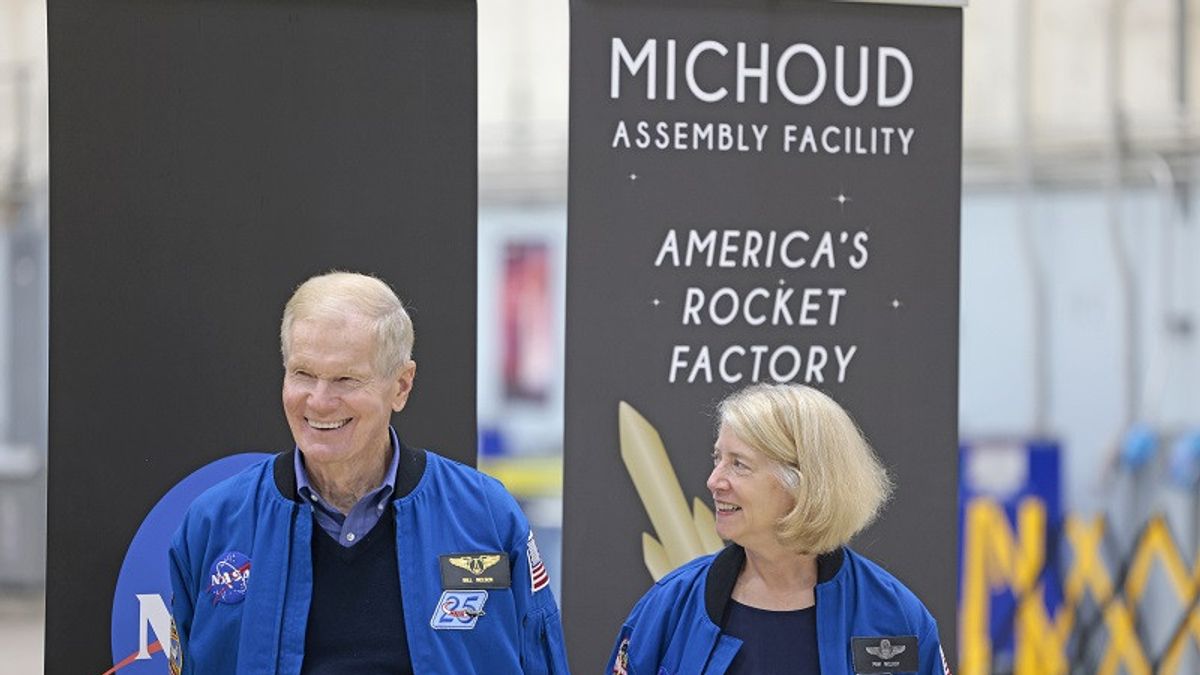JAKARTA – The year 2021 will be the busiest year for NASA. The United States Space Agency has completed the year with the development of its technology in low-Earth orbit. It also immediately made launch history to Mars. There is also the development of Artemis' plans for a mission to the Moon.
NASA has also been testing new technologies for supersonic spacecraft, completing launch preparations for the next generation of space telescopes, the James Web and more. All projects are operating safely during the pandemic and welcome new leadership under the Administration of US President Joe Biden and Vice President Harris.
“At NASA, we turn science fiction into science fact, and we do it every day. From continuing astronaut launches to the International Space Station from American soil to landing the Perseverance rover on Mars and recording the first flight on another planet, 2021 is a year of flags for the world's premier space agency and all of humanity," said NASA Administrator Bill Nelson, who was sworn in. 3 last May by Vice President Kamala Harris.
"Next year, NASA will achieve even bolder feats with new discoveries and technological advances, especially as our Artemis I mission has paved the way for future crewed missions to the Moon — and beyond," Nelson added.
Among the many science achievements for the year, NASA is continuing preparations to launch the James Webb Space Telescope on December 24 from French Guiana. They have successfully landed the Perseverance rover on the surface of Mars, and piloted the Ingenuity, a Mars helicopter – the first powered, controlled to fly on another planet.
NASA has also welcomed back to Earth the first two sets of commercial crewed astronauts to complete an expeditionary mission aboard the International Space Station and launch Crew-3 into an orbiting laboratory.
During the Crew-2 mission, the astronauts spent a US record 199 days in orbit, and surpassed the 168 days set by the Crew-1 mission earlier this year.
The agency advanced plans to explore more of the Moon through Artemis, and promised to send the first woman and first person of color to the lunar surface.
To pave the way for future lunar missions with crews, NASA completed the Space Launch System rocket buildup, with the Orion spacecraft for the Artemis I mission launching in spring-2022.
In addition to other highlights, NASA has also selected SpaceX to continue development and demonstration of the first commercial human lunar lander.
This year, the Biden-Harris administration also appointed NASA to join the White House Climate Task Force. The agency also established a new position as senior climate adviser and released a climate action plan aimed at avoiding the mission's impacts from climate change.
NASA is also taking action to roll out supersonic flight technology to more airports to help save time for passengers, pushing boundaries to make aeronautics greener and more efficient.
The English, Chinese, Japanese, Arabic, and French versions are automatically generated by the AI. So there may still be inaccuracies in translating, please always see Indonesian as our main language. (system supported by DigitalSiber.id)













